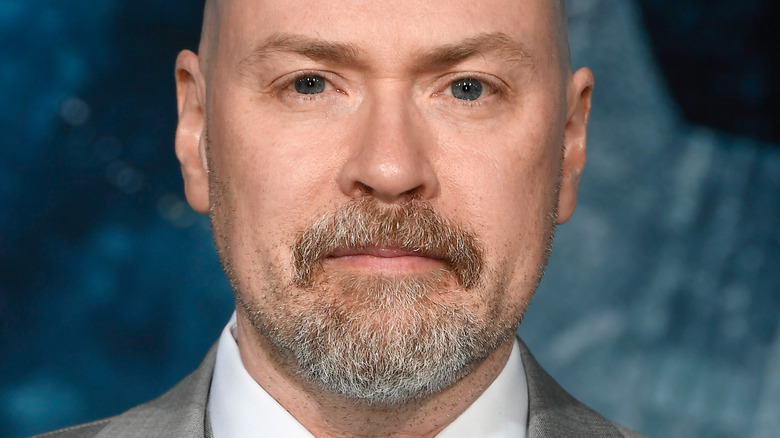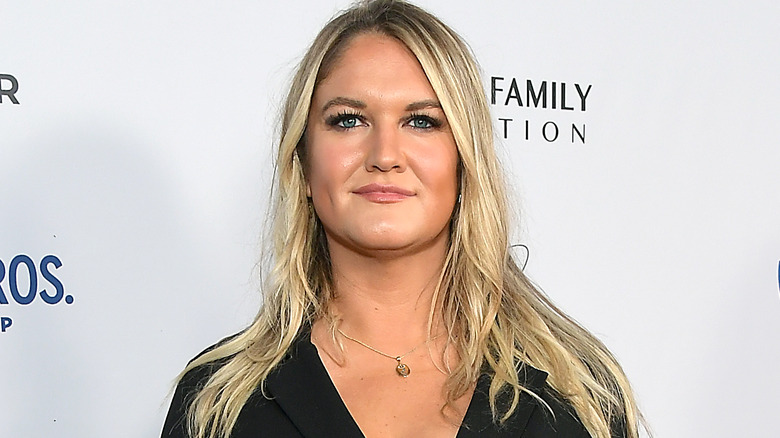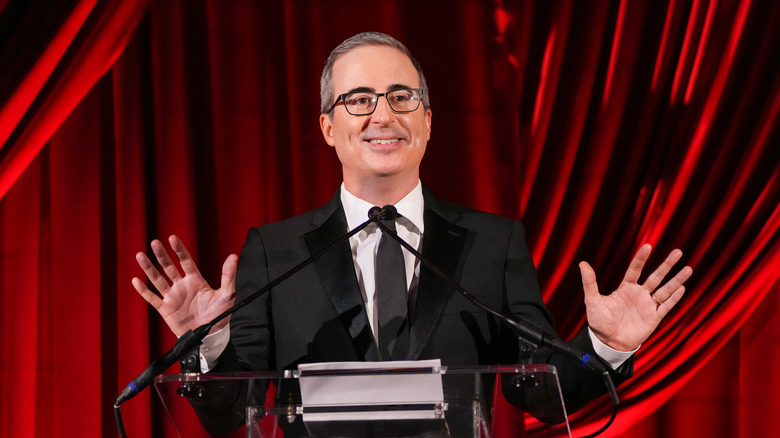Hollywood Creatives Are Breathing Fire Over The Current Trend Of TV Tax Write-Offs
Recently, Hollywood has been trying to put its balance sheets back in black, and one of its latest strategies has creatives seeing red. With business irrevocably altered by a global pandemic, the film and television industry is struggling to find a way forward in the current landscape of streaming, and some studios and streamers have identified a controversial way to recoup probable losses. As it turns out, canceling a TV show or movie allows studios and streamers to write it off as a loss on their taxes, putting money back into corporate pockets. In many instances, the media must never see a release of any sort to qualify for relief.
That loophole has led to an increasing number of cancellations recently, and creatives are increasingly voicing their anger, sadness, and frustration as their hard work is fed to the corporate woodchipper. Warner Bros. Discovery has been the biggest offender, making waves when it canceled projects like the nearly completed "Batgirl" film bound for HBO Max, and even major hits like "Westworld" have not escaped the culling. Following suit are players such as AMC Networks, which put the ax to the completed second season of the animated series "Pantheon" this week (via Variety) after announcing upcoming mass layoffs late last year.
The complete erasure of what often amounts to years' worth of their work is the last thing those who worked on the canceled shows expected. And as the tax write-off trend shows no signs of slowing, they're increasingly making their rage heard.
Angered filmmakers suggest new contract language and union battles
In an impassioned Twitter thread, Carina Adly Mackenzie, who created "Roswell, New Mexico" for The CW, railed against the practice of canning TV shows for tax write-offs, suggesting that new industry standards are needed.
While acknowledging how tax write-offs have been employed infrequently in the past, Mackenzie highlighted their increasing ubiquity. Though legal, such moves represent broken promises from studios and streamers, Mackenzie wrote, as those companies usually make bold promises to support the vision of their creators and to do whatever possible to ensure its success. But once the deal is signed, the studio is in control. Mackenzie wrote, "You make the show the way they ask you to make it. You take their notes. They approve every single detail of each script..."
One possible solution, Mackenzie thinks, is new contract language. "We're going to have to start to need language in our contracts, or penalties maybe, to shift this — but that will be very hard." Though the showrunner didn't get detailed, such language might prevent studios from pulling the plug on shows they've committed to, or at least stipulate compensation for creators who wind up having years of work swept under the rug by their corporate bosses.
Meanwhile, Steven DeKnight, executive producer of Netflix's "Daredevil" and director of "Pacific Rim Uprising" took to his own Twitter, declaring, "The WGA, DGA, and SAG-AFTRA need to crack down on this practice during their next respective negotiations. Pull that [s***], face HUGE financial penalties paid to the cast, crew, and creatives. Watch it stop real quick."
Mackenzie also acknowledged that unions will need to fight this battle, but seemed pessimistic, concluding, "add it to the very long list of things we have to fight for this year. We never win them all."
Cancelations and tax write-offs have drawn widespread derision
As Carina Adly Mackenzie explained in her Twitter posts, most Hollywood creatives are working-class folks who rely on the income generated by their work to make ends meet and to ensure future work. When a show is unceremoniously dumped, it not only means a loss of income for those who helped make it but also a gap on their resume, making it harder for them to book a new project. That's in addition to the emotional toll of seeing one's hard work cast into the void.
Mackenzie isn't the only one concerned about the tax write-off trend. Following the cancellation of "Westworld" and its removal from HBO Max, prolific horror filmmaker Mike Flanagan, too, decried the practice. "WESTWORLD is available on Blu-ray, but this will happen to shows that aren't. The cancellation of a series is sad enough — but the erasure of a series is horrifying", he wrote in part. Flanagan is the creator behind "The Haunting of Bly Manor," "Hush," and other major works of horror, lending extra weight to his concerns.
Even late-night Emmy darling John Oliver, whose show, "Last Week Tonight with John Oliver," is streamed on HBO Max, has voiced his contempt. On the August 21, 2022, episode of his series, Oliver quipped, "HBO Max: It's not TV. It's a series of tax write-offs to appease Wall Street."
Warner Bros. CEO Gunnar Wiedenfels recently addressed the firestorm with tepid comments, saying no more "strategic asset sales" are on the horizon (via Deadline). But so long as Hollywood continues to give creatives the short end of the stick for financial relief, outrage will likely grow commensurate with the number of people affected. It's clear that many in the industry will not endure such treatment silently.


